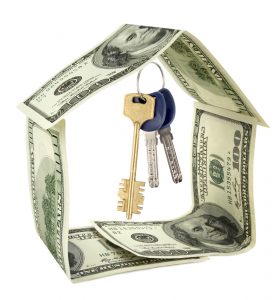 U.S. mortgage rates are well below 3%. When rates are this low, refinancing becomes a desirable option for many homeowners. Lowering monthly payments and saving on long-term interest makes financial sense for many borrowers.
U.S. mortgage rates are well below 3%. When rates are this low, refinancing becomes a desirable option for many homeowners. Lowering monthly payments and saving on long-term interest makes financial sense for many borrowers.
However, there are several scenarios where paying extra toward your mortgage is preferable. For example, many homeowners already have low interest rates. Additionally, refinancing won’t always be the best option for homeowners close to paying off their home loans.
This article examines both scenarios so that homeowners can figure out the strategy that works best for them.
When to Refinance
There are many considerations for borrowers to make when deciding to refinance or pay extra toward their mortgage. Typically, this depends on the individual’s financial goals or particular needs.
It’s usually better to refinance if:
The homeowner plans to stay in their home for a long time. Refinancing carries several upfront costs, meaning that the homeowner needs to remain in their home long enough to cover these costs and benefit from the new loan savings.
The mortgage is several years old and not close to being paid off. If a homeowner has taken out their mortgage within the last several years, they might benefit long term from refinancing.
The homeowner wants to tap into home equity. Homeowners can use cash-out refinancing to access lower interest rates and tap home equity to consolidate debts, renovate their home, or pay for other significant expenses.
The homeowner qualifies for a lower rate. When evaluating an application to refinance a mortgage, lenders check applicants’ credit scores, employment, and debt-to-income ratios. As a result, well-qualified borrowers receive the best rates, which can translate into monthly savings.
Borrowers who meet some of the above criteria can benefit from accessing lower interest rates through refinancing.
Related: Why Homeowners Should Refinance Their Mortgage
Advantages of Refinancing
Low interest rates during the pandemic have seen millions of homeowners choose to refinance their mortgages. The decision to refinance has several benefits that include:
- Lowering the monthly mortgage payment.
- Reducing the cost of interest over the life of the loan.
- Tapping into home equity to consolidate debt or pay expenses, such as college or a home renovation.
- Saving money on mortgage insurance by changing the loan type.
- Replacing adjustable-rate mortgages with fixed-rate loans.
Disadvantages of Refinancing
The best way for borrowers to decide whether to refinance is by considering whether the loan will help them over the long term.
In some cases, lowering the cost of monthly payments via refinancing will be the best course of action. However, it’s worth noting that reducing an interest rate can lead to higher long-term loan costs.
Some scenarios where borrowers add to the overall cost of their home loan are:
- Increasing the loan term: For example, restarting a 30-year loan can increase overall interest costs.
- Selling the home soon: Refinancing carries upfront costs, so a borrower who sells the home soon after refinancing may not realize any savings from refinancing.
When to Pay Extra Toward Your Mortgage
It’s typically better to make extra payments if:
The homeowner plans to sell the home soon. Unfortunately, it takes several months to recoup the cost of refinancing at a lower interest rate, so homeowners who will sell their home soon are usually not good candidates to refinance a mortgage. Instead, these borrowers should consider paying extra toward their mortgage principal, thereby paying less interest and saving money.
The borrowers have already paid off a significant amount of the loan. Fifteen to twenty years into a 30-year loan, homeowners have already paid off a large portion of the loan’s interest. Restarting a 30-year mortgage, even at a lower interest rate, could increase the total cost of the loan, negating any short-term savings.
The borrowers can’t secure a competitive rate. As mentioned above, well-qualified borrowers are typically offered the best interest rates. However, paying extra toward a mortgage may be the best move for homeowners in a less financially healthy position.
Related: When and How to Pay Off Your Mortgage Early
Advantages of Paying Extra Toward Your Mortgage Principal
There are many situations where the benefits of paying down the principal balance on a home loan outweigh savings from refinancing to achieve lower interest rates. This strategy involves the borrower paying a lump sum toward their principal balance or increasing their monthly mortgage payment.
The primary benefit of this type of approach is that it lowers the total loan amount, which reduces the balance on which homeowners pay interest. Thus, a lump sum can reduce the total mortgage cost and even help borrowers pay off their homes earlier.
Some of the different strategies that homeowners employ are:
Making an extra payment every year: For example, instead of making 12 payments, some borrowers make 13 annual payments.
Making a bi-weekly mortgage payment: This method means paying half the monthly mortgage payment 26 times per year. This method results in making the equivalent of 13 monthly payments each year.
Increasing your monthly mortgage payment: Some borrowers choose to pay more on their mortgage each month, paying down the principal more quickly and paying less interest over the term of the loan.
Marimark Realty
Marimark Realty, home to the top Tampa Real Estate Agents, focuses on providing a personalized experience for buyers and sellers of real estate. As a full-service real estate agency, we help clients with luxury homes, homes for first-time homebuyers, commercial property, and investment property.
To begin the journey of purchasing or selling your home, or purchasing commercial or investment properties, contact us at your earliest convenience.
